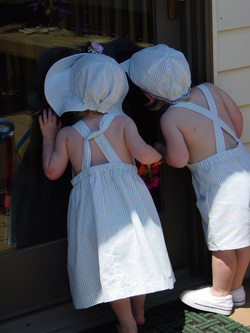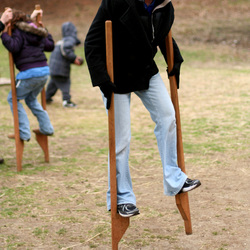
It's good, really good. Like, awesome. Pixar is great at humanizing things that aren't human, like toys, fish and rats. In this movie what is humanized? Well, emotions! And true to our expectations, Pixar does it with creative aplomb!
I'm recommending the movie for my clients, family, and friends.
It's not just a movie for kids! It's a movie for everyone. We don't get Emotions 101 in our school core curriculum. So, sometimes we miss out, or are delayed, in understanding some pretty important things about how our emotions work, how to take care of our emotions, how to make good choices when we feel a certain way, and how to connect to others emotionally in healthy ways. All pretty important stuff.
Not understanding our basic emotions and how to handle them in healthy ways can lead to lots of issues for individuals, for families, and for couples too. Even impact stuff at school and work and in our communities.
It's the sort of stuff that can blow up on us at times. The sort of blow up that can make you call a therapist for an emergency appointment!
Dealing with emotions is the stuff of life. For everyone. We all have a full range of emotions. Like the main character, Riley, in the movie, we all have joy, sadness, anger, fear and disgust. We all are impacted by our emotions. We all respond in various ways to our emotions. Most people "like" some of their emotions more than others. Riley sure does. Honoring our range of emotions makes us stronger as people. The movie is especially good at helping us understand the role and importance of sadness.
Sometimes people respond to their emotions in ways that aren't so healthy. Sometimes people aren't even aware of the connection between their thoughts and actions-- and the emotions going on inside them. I like to call it "Our Trio"--thinking, feeling, doing. Each of us tends to lead with one part of the trio. But we all do better if we connect each part with the other parts so our thoughts, feelings, and actions all connect and work together. Therapists like myself often work with people to better understand their emotional self and how it impacts things around them--and how to get the unhealthy emotional reaction stuff headed the other way, to healthier responses.
Inside Out is a fun, engaging and creative movie. AND, it deals with something really important--emotions. The movie handles this big topic with genius. And the movie is based on good science. All round, it's a win win.
It's pretty cool for me, as a therapist, to see some of this "help" stuff being looked at and promoted in a popular movie, especially one geared for all ages! I think this movie will influence kids (and grownups) to understand emotions better. And, that will lead to better relationships and healthier families. Movies become part of our lives and shape our culture, for better or for worse. This one is definitely for better!
Inside Out is a treasure. Go see it, or see it again!
Image by Rebekah Schott rebekahschott.com





 RSS Feed
RSS Feed